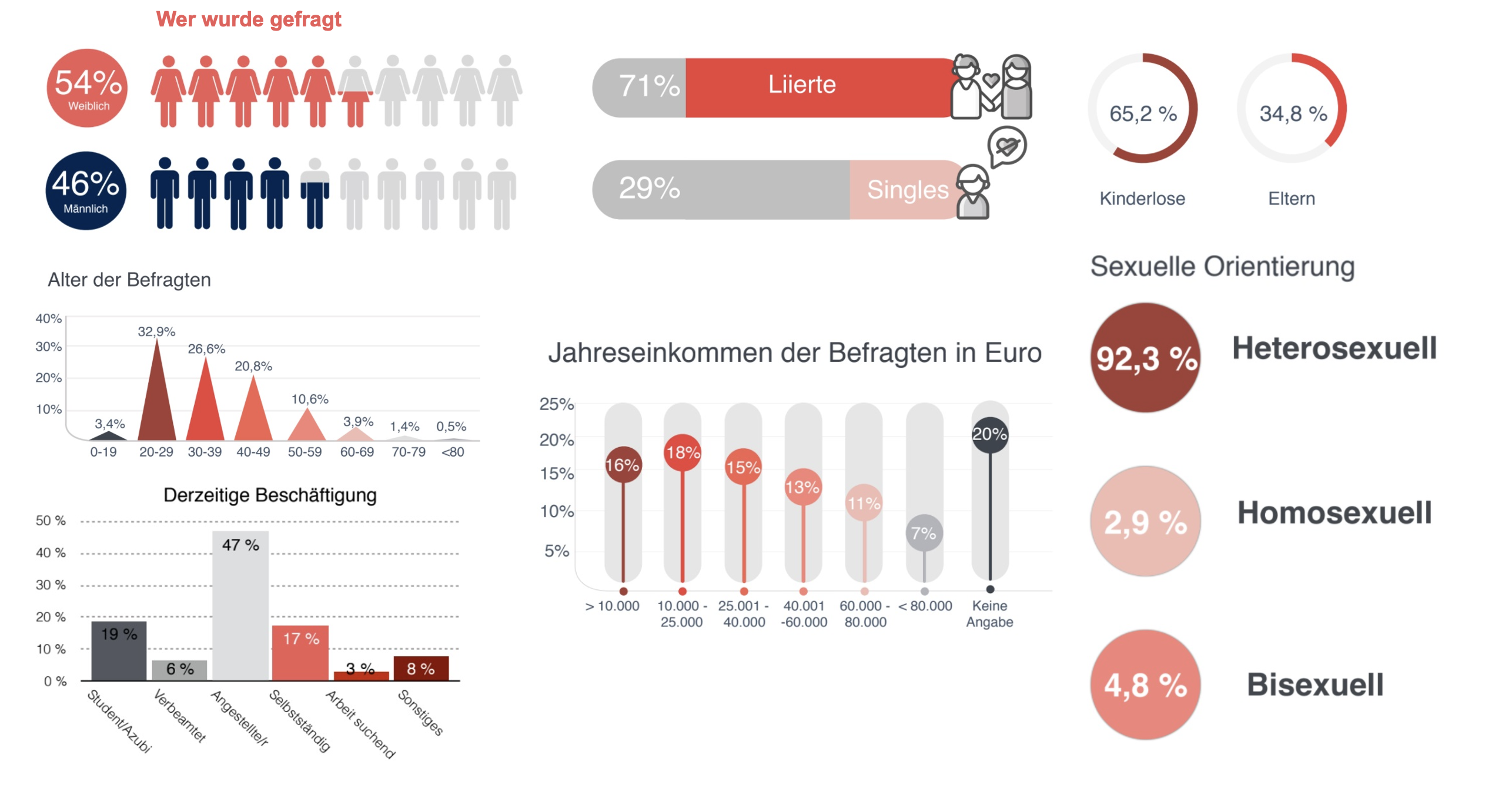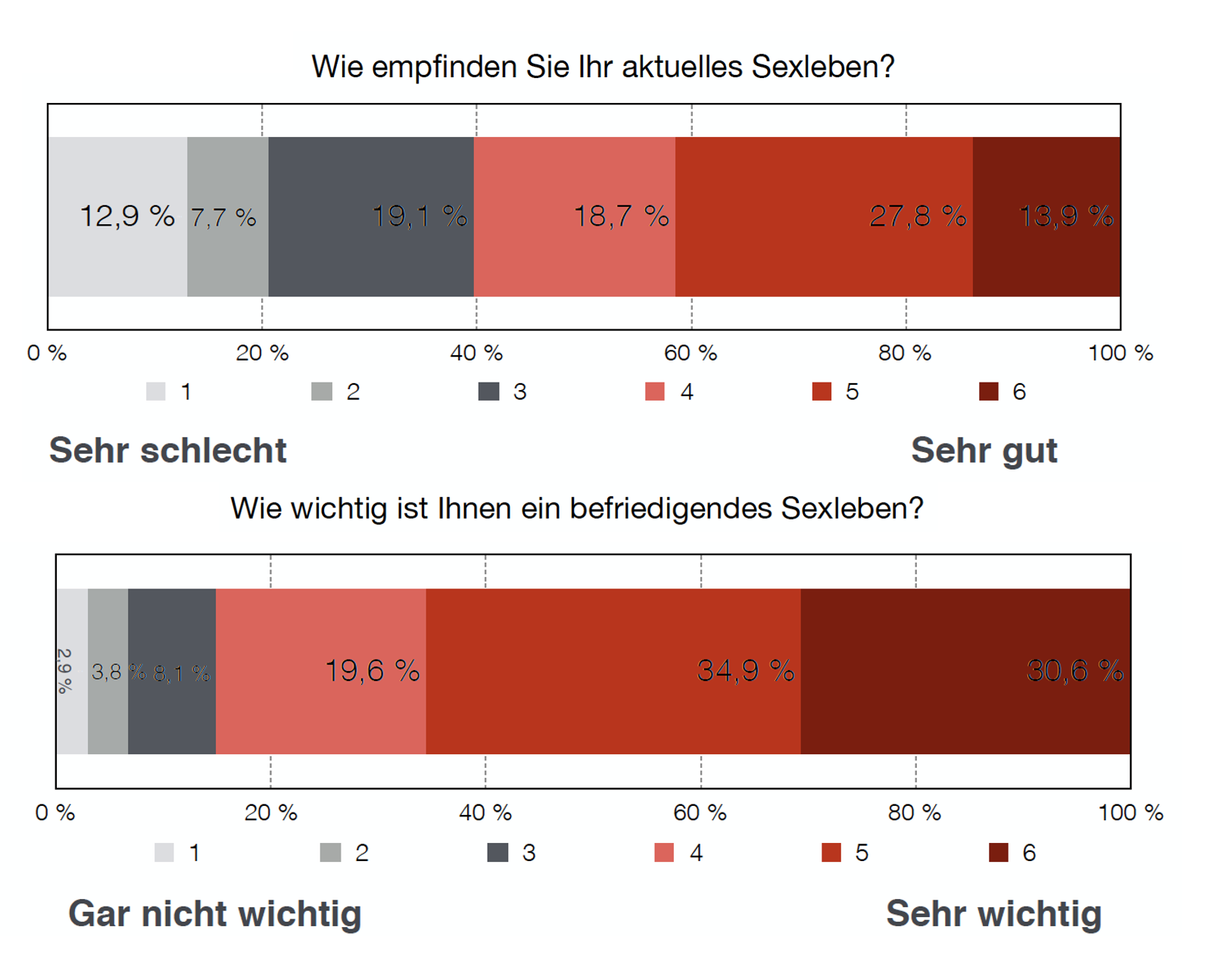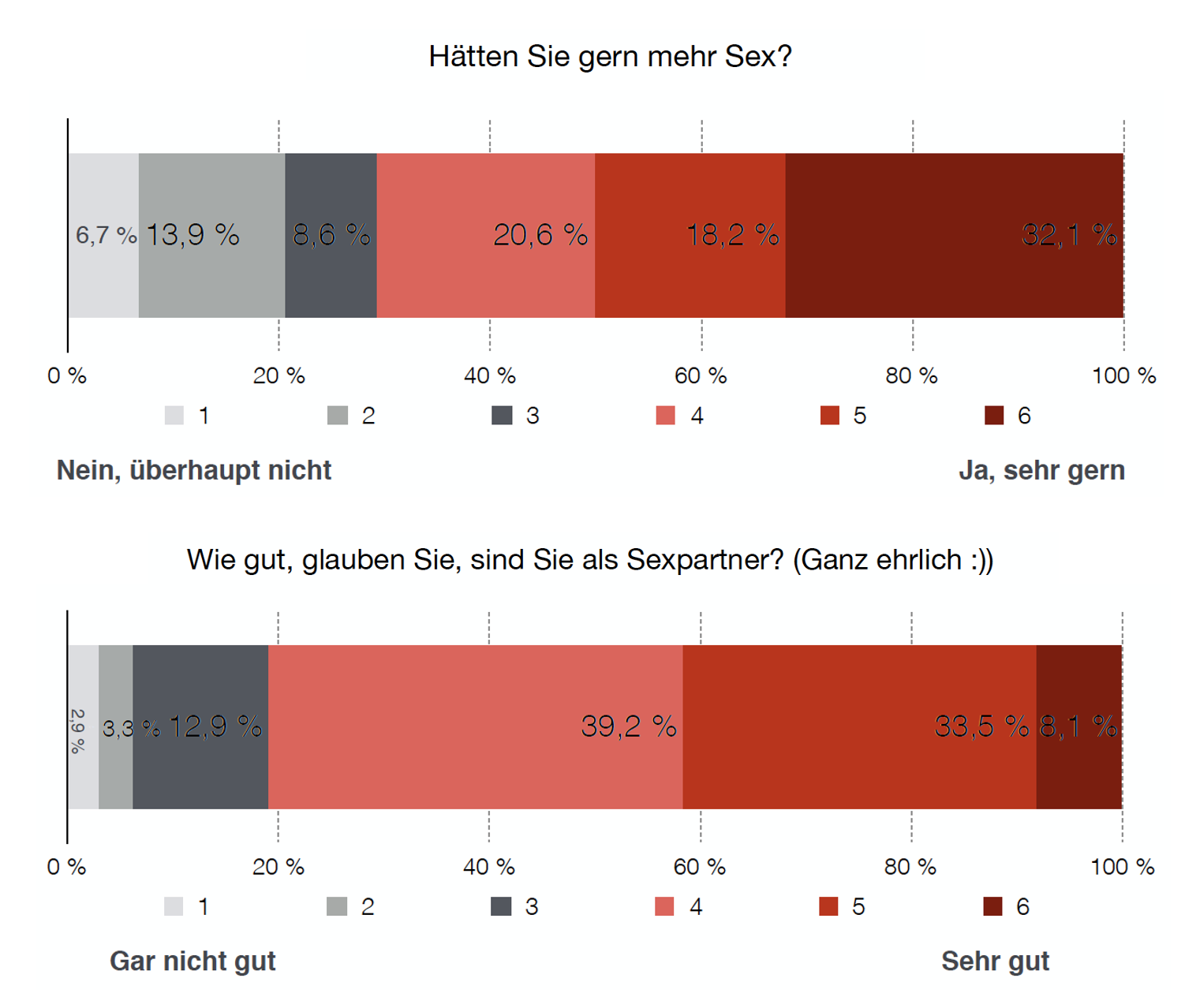Sex -

Starting Point and Methodology:
There are numerous psychological biases to be considered in questionnaire construction. People of different cultural backgrounds show different response tendencies. Depending on the wording of questions, certain answers (regardless of the content of the question) become more likely. Ease and pleasantness of answering has a high influence on responses. Besides, question order essentially determines how valid the answers are.
Neutralizing these psychological biases as much as possible while still allowing the most economical data collection format for our clients - this is the special competence of our psychology team.
When dealing with taboo content, obtaining true, unbiased, and meaningful information is particularly complex. In this study, the goal was to build a successful business model around the value proposition of improved sex lives for users. As always, it is essential to understand the needs and desires of the target group.
Therefore, an online survey in the German-speaking area should generate important and insightful insights into the sex life of the Germans and examine present problems in the context of this area, which is considered a taboo topic by the majority. Some generally valid results will be presented here.
Implementation of the Study:
Data collection was realized by means of a 150-item questionnaire to ensure anonymity. 71% of the respondents were in relationships whereas 29% were single. 65% were childless and 35% were parents.

The questionnaire study made it possible to survey a large number of people and It was intended, among other things, to make reliable statements about the perception of the product's characteristics and willingness to pay.
Sexuality is a sensitive topic in Germany. It was to be assumed that answers to questions in this regard would be strongly distorted by social desirability and shame. Accordingly, in addition to the specific topic, the project continued to excel in creating psychologically trained and scientifically accurate question formulations.
Results:
The topic of the study is fraught with numerous gender stereotypes. However, both expectation-conforming and expectation-breaking results were found. We have listed some exciting excerpts for you here. As you read them, you may ponder for yourself: What would I expect from the common clichés? Would I have thought?
Germans
A satisfying sex life is enormously important to the Germans! The status quo, on the other hand, leaves much to be desired. An increase in frequency is desired. Their own self-esteem in bed is relatively high.


Gender
Women tend to think they are better than men in bed. They have slightly less sex than men. Men desire more sex than women.
Men tend to criticize their partners harder. Women consider themselves and their partners more loyal than men do.




Relationship Status
The singles tend to be satisfied with their status, in general; in particular, women even more than men. A third of singles have sex once a year or less in Germany. Singles consider themselves better in bed than partners.
More than a third of all single women say that they are 'not at all' looking for a partner. 24% of men and 15% of women are looking 'intensively' to 'very intensively'.


Parenthood
A satisfying sex life is significantly more important to parents than to childless people. Combined with the fact that parents tend to rate their current sex life worse than the childless, this qualifies them as a particularly interesting target group for the planned product.
Attractiveness
Above all, the answers are similar in terms of attraction for men and women. However, the number of entries also shows the greater importance of external physical features for men. An athletic physique is more important for women, but men gave significantly higher values for individual features such as buttocks, breasts, and legs. Sex toys are more attractive to women while moaning is preferred by men. Women tend to feel more repelled by less frequent practices.

Conclusion:
For our client, our survey’s derivations added more value to their business model. There is a significant need for the online program presented in the study. Nearly 30% of respondents said they were ‘likely’ to ‘very likely’ to seek support through such a program. Supportive websites and tips from friends were clearly ahead in the program's ranking of possible sources of assistance. Advice books, sex therapists, and video tutorials are also popular. Sex coaches are less popular, and the last place is occupied by weekend courses and training programs.
Implication:
With the right study design which adapts to each project individually in close consultation with the client, it is also possible to obtain critical and private insights from the target population - such as in this case preferences and dislikes in the sexual behavior of Germans.
